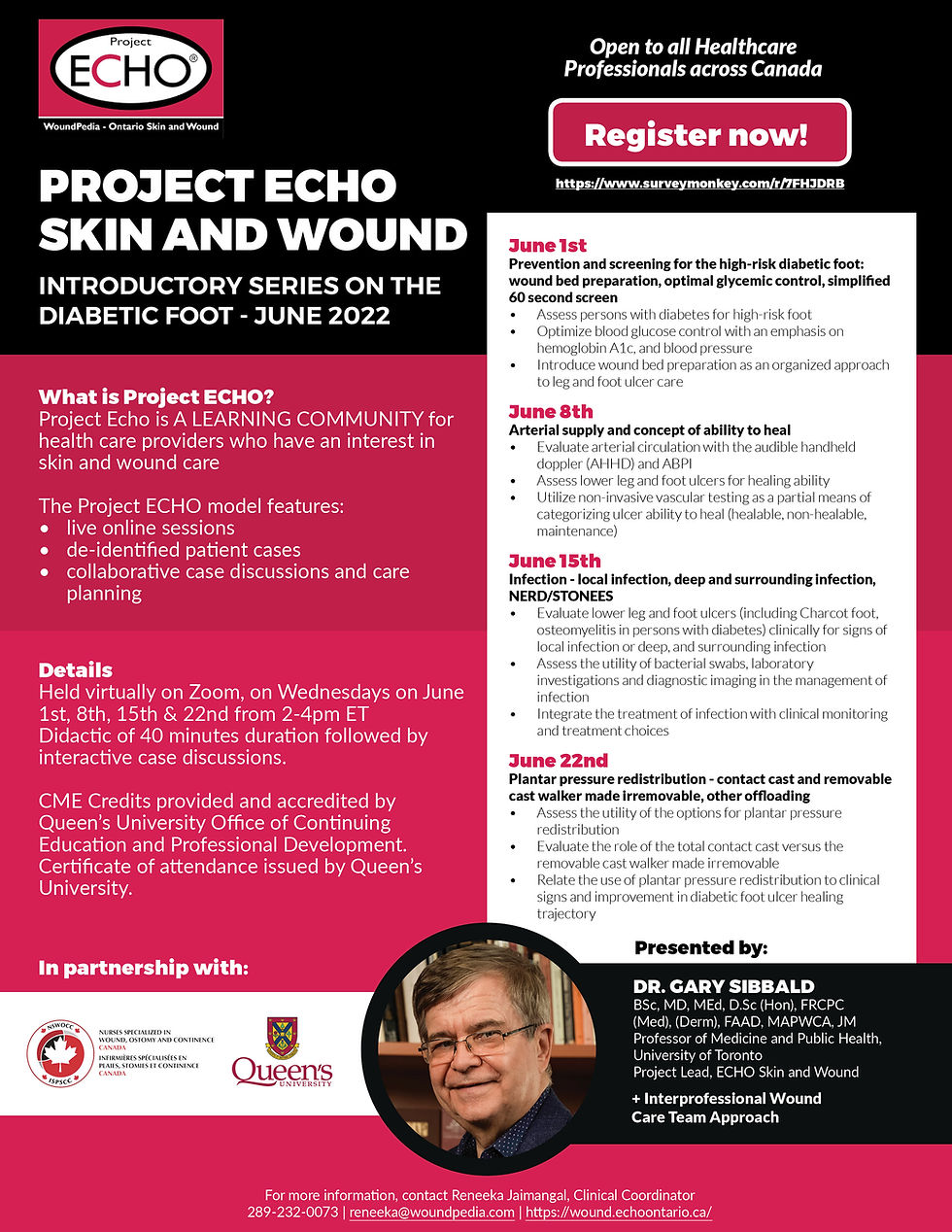Project ECHO Skin and Wound INTRODUCTORY SERIES ON THE DIABETIC FOOT - JUNE 2022
- NSWOCC
- May 10, 2022
- 2 min read
NSWOCC and Queen's University are partnering with the Project Extension for Community Healthcare Outcomes (ECHO) to provide an Introductory Series on the Diabetic Foot. You are invited to join other Community providers and specialists from across Canada!
What is Project ECHO?
Project ECHO is A LEARNING COMMUNITY for healthcare providers who have an interest in skin and wound care.
The Project ECHO model features:
live online sessions
de-identified patient cases
collaborative case discussions and care planning
Details
Held virtually on Zoom, on Wednesdays on June 1st, 8th, 15th & 22nd from 2-4pm ET
Didactic of 40 minutes duration followed by interactive case discussions.
CME Credits provided and accredited by Queen’s University Office of Continuing Education and Professional Development. Certificate of attendance issued by Queen’s University.
Presented by:
DR. GARY SIBBALD
BSc, MD, MEd, D.Sc (Hon), FRCPC (Med), (Derm), FAAD, MAPWCA, JM
Professor of Medicine and Public Health, University of Toronto
Project Lead, ECHO Skin and Wound + Interprofessional Wound Care Team Approach

Schedule:
June 1st
Prevention and screening for the high-risk diabetic foot: wound bed preparation, optimal glycemic control, simplified 60 second screen
Assess persons with diabetes for high-risk foot
Optimize blood glucose control with an emphasis on hemoglobin A1c, and blood pressure
Introduce wound bed preparation as an organized approach to leg and foot ulcer care
June 8th
Arterial supply and concept of ability to heal
Evaluate arterial circulation with the audible handheld doppler (AHHD) and ABPI
Assess lower leg and foot ulcers for healing ability
Utilize non-invasive vascular testing as a partial means of categorizing ulcer ability to heal (healable, non-healable, maintenance)
June 15th
Infection - local infection, deep and surrounding infection, NERD/STONEES
Evaluate lower leg and foot ulcers (including Charcot foot, osteomyelitis in persons with diabetes) clinically for signs of local infection or deep, and surrounding infection
Assess the utility of bacterial swabs, laboratory investigations and diagnostic imaging in the management of infection
Integrate the treatment of infection with clinical monitoring and treatment choices
June 22nd
Plantar pressure redistribution - contact cast and removable cast walker made irremovable, other offloading
Assess the utility of the options for plantar pressure redistribution
Evaluate the role of the total contact cast versus the removable cast walker made irremovable
Relate the use of plantar pressure redistribution to clinical signs and improvement in diabetic foot ulcer healing trajectory
